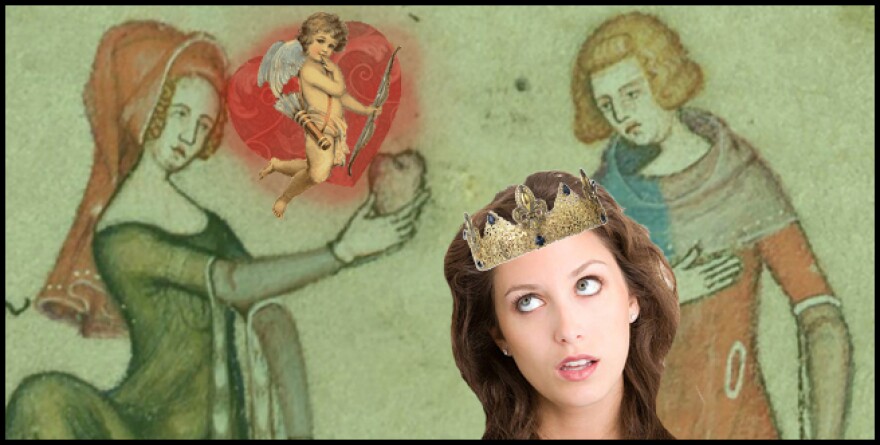“Almira,” Handel’s first opera which he wrote when he was 19, will be featured on this week’s Sunday Opera (8/28 3:00 p.m.) in a performance from the Boston Early Music Festival. Because of the length of the opera, all subsequent programming will begin one hour later tonight.
The full title of this 1705 work is: “The change of fortune obtained in Kronen, or Almira, Queen of Castile,” and the Italian libretto by Giulio Pancheri was written for Giuseppe Benevento’s 1691 opera “L’Amira.” Friedrich Christian Feasting provided the German translation that Handel used, and while the recitatives and most of the arias are sung in German, many are in Italian which seems to have been a custom of the time at Hamburg’s opera house.
The opera was a huge success, but it’s first modern performance wouldn’t come until 1985 in Leipzig.
Story is just too complicated and confusing to go into, but suffice it to say that Queen Almira must marry, but the man chosen for her by her guardian is in love with someone else, and seems to have been chosen so that his father can take his place in the affection of that woman who is a princess from a neighboring kingdom. At one point three men are vying for Almira’s hand while various women are trying to reclaim their love, and well, it just gets interesting.
However, in the nick of time, the man whom Almira loved at the beginning of all of this, turns out to be of noble blood, so she can marry him. With that, all of the other couples fall into place, realizing just who they really do love.
Tune in for the opera, and all will hopefully become clear.
This performance by the Boston Early Music Festival features Emoke Barath in the title role, and she’s joined by Amanda Forsythe, Colin Balser, Christian Immler, Zachary Wilder, Jesse Blumberg, Teresa Wakim, and Jan Kobow.
As a palate cleanser after the opera, please join Michael Kownacky for Prokofiev’s final larger piece written just two years before his death. His Symphony No. 7 in C sharp minor which was his attempt at a simpler work and one that he said was written for children. The performance by the Bergen Philharmonic Orchestra conducted by Andrew Litton, features the alternate final movement Prokofiev wrote so that the work would end more “optimistically.”





